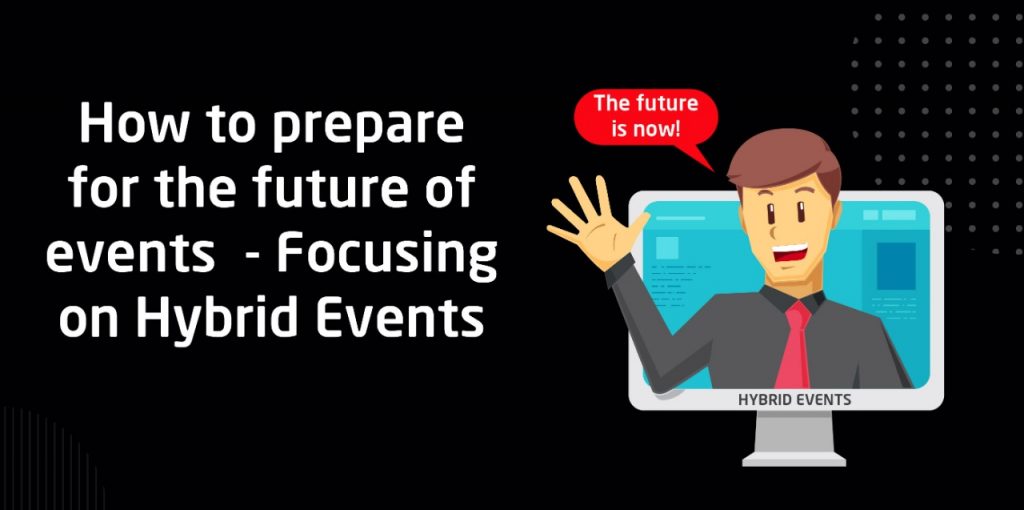01 Jul How to prepare for the future of events: focusing on Hybrid Events

In this age of constant digital innovations and disruption, the value of digital elements across the board has become evident. With continuous learning and development, digital activities have become ingrained in the fabric of humanity. However, it is vital, especially, in the age of information that brands and organisations lead with a value over volume, to ensure that the communication going out to your audience is not only tailored to their needs but is also enticing
How to prepare for the future now
As the world continues to advance technologically, as digitalisation and disruption blaze the way forward for the next decade. It is critical for brands to adapt strategies around these areas now that will lead the way later.
Thriving brands are able to shift their thinking from static to dynamic. They are deliberately designed and intentionally built. Above all they create environments that enrich the lives of the audiences they wish to engage with.
By acting now and swiftly brands will be able to grow and retain their audiences, ensuring the future of their brand.
Hybrid events
As the economy slowly begins to gear up for the new normal with regards to the way events and conferences are run. Brands must rethink experiences beyond the traditional forms of mass gathering (Cook & Shepherdly, 2016). As Jameson Hlongwane, Deputy MD of the VWV Group states: “Recalibrate and remind yourselves that experiential is a tactic, not a channel”. As event planners, it is up to us to find new and creative ways to engage with the audience on behalf of our clients.
As the world and South Africa move from curated one on one experiences to interactive broadcasting and socially intensified strategies. Hybrid events that consolidate physical and digital experiences will be more relevant than ever.
The benefits of hybrid events
Hybrid events hold a number of advantages over the more traditional events. The largest and most apparent being the number of people or impressive reach that hybrid events provide (Nilsson,2020). This is a result of the fact that event planners as well as the audiences are no longer confined to physical or geographic limitations, meaning an endless number of people are then able to attend.
This of cause from an organisational point of view is massive as hybrid events give a great return on investment (ROI), as they are cost-effective (Nilsson,2020). Hybrid events bring exponentially more eyeballs, attention and prospective customers to your events.
One way to think about this is instead of having several similar events you can either host one big event and host that nationwide or a series of different events that people can all attend and stream.
However, it is vital to know what hybrid events are not, a true hybrid event will create the same experience for those streaming than it would for those who physically attend. This is done through participation; those online are also able to participate in Q&A sessions as well as interact with the speaker whilst also engaging with fellow attendees.
The impact of hybrid events on South Africa
It goes without saying that the current pandemic has impacted our industry as a whole, but also shown us that it is essential to remain relevant to the times. Technological advancements play a larger and more cohesive role not only in the present but in the long term future.
Fryatt et al. (2012b) as well as Morell (2010) both highlighted the importance that these events can have especially for the African continent. They go on to draw attention to the possibility of using hybrid events as a way to reach an audience in different languages and repurposing the content to ensure that everyone is able to take part especially if they are not able to travel to the location. To date we have seen that hybrid events have been able to take away limitations such as travel restrictions or country borders. Further ensuring that brands are still able to reach their audience and stay connected.
Moving forward brands will need to utilise collaborations and harnessing the collective experience we’ve all shared as a result of the pandemic. It is vital that we all start thinking about the future of events and the circular economy and how work translates into day-to-day planning at the micro-level. Lastly brands and event managers will need to continue taking the necessary action needed in the face of overwhelming consequences.
References



Sorry, the comment form is closed at this time.